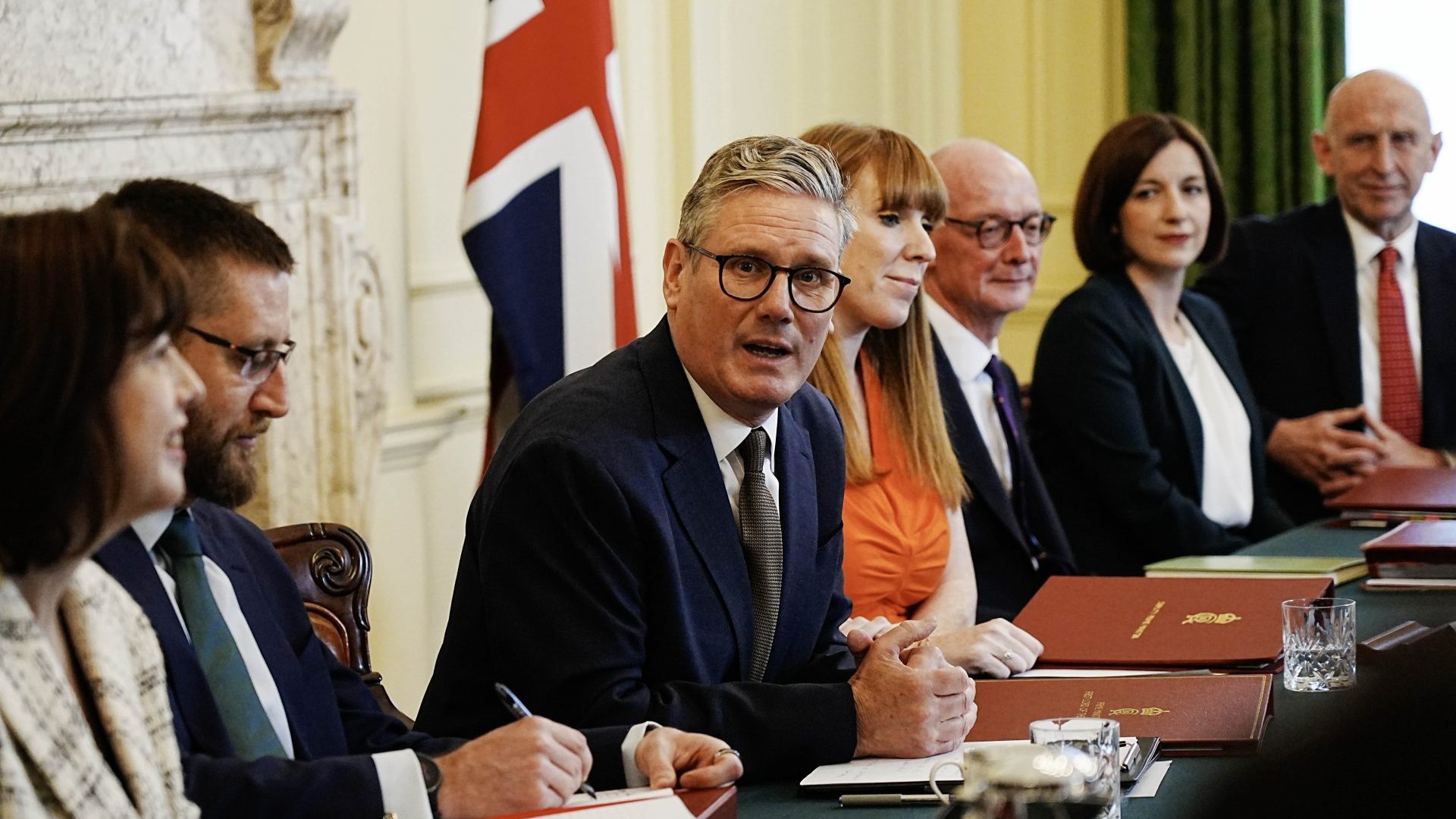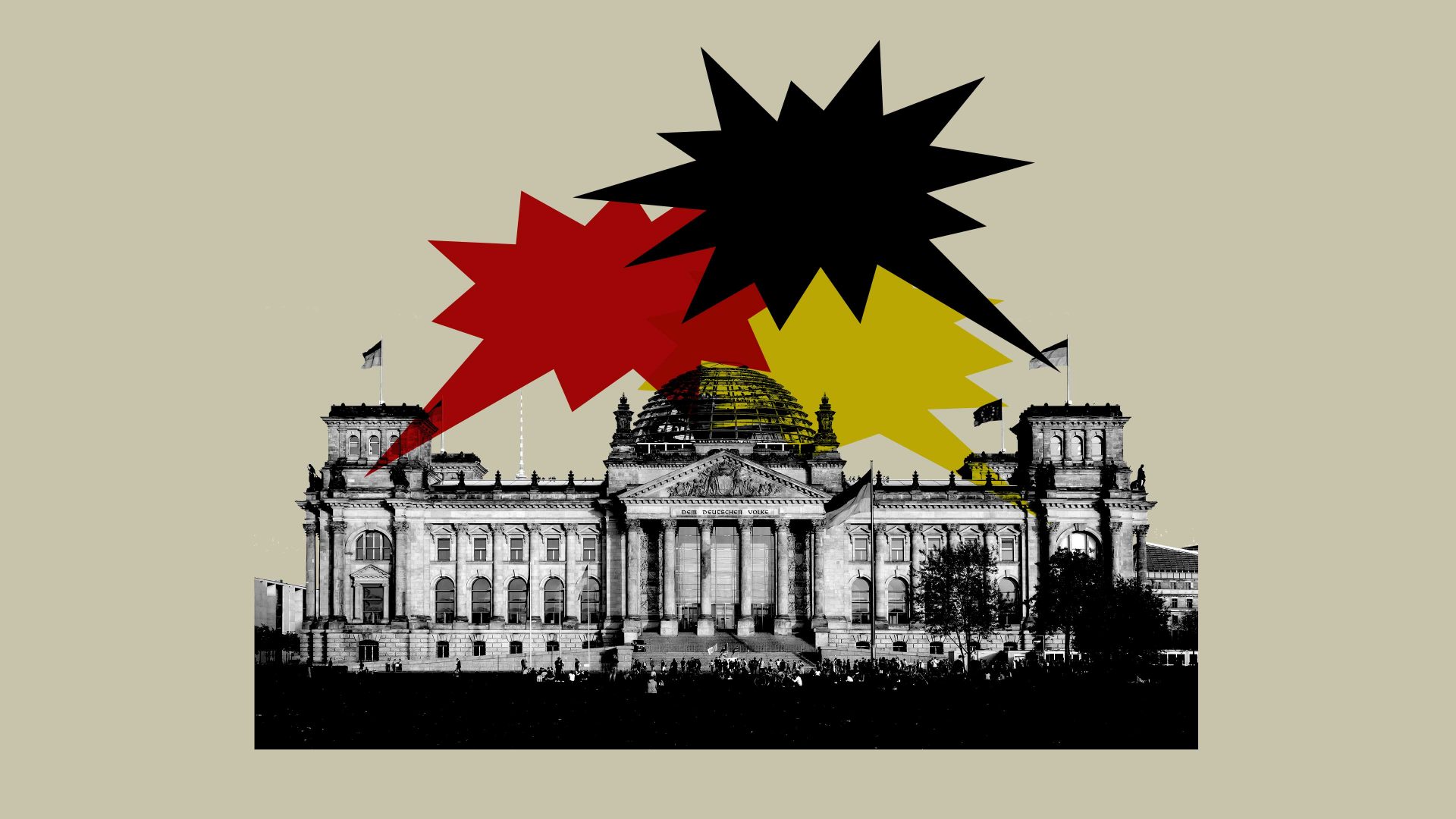I have seen Labour win from opposition only three times. The first time was in 1974 – when Harold Wilson came to power after a miners’ strike that reduced the whole of industry to a three-day week.
The second time was Blair’s landslide in 1997. The third is Starmer’s spectacular victory, which has overturned the catastrophe of 2019 and shattered the Tory party much more comprehensively than Blair ever did.
Technically this should be the happiest day of my political life. But I am filled with concern. Because we’re seeing the four-way fragmentation of the British electorate, the arrival of large-scale foreign manipulation of our politics, and a breakthrough for racist populism.
In the winning corner stand not only Labour, but the Lib Dems and Plaid, who have each advanced at the expense of the flailing Tories. In the losing corner stands conservatism, which may never recover.
In a third corner stands Reform – a party that selected openly racist candidates, and whose leader accused Muslims of failing to subscribe to British values. Fourth, there is now a clear left-wing pole in Parliament that includes four Greens, Jeremy Corbyn and a handful of like-minded independents.
And as anyone who’s been on the doorstep knows, both the Reform vote and pro-Palestine votes were driven by off-the-scale anger and disenchantment. Worse, though they rarely meet, the most fanatical among Reform and pro-Palestinian leftist voters are mentally at civil war with one another.
Starmer’s strategic task is defined by this mixture of political fragmentation and economic stagnation.
In the days of Heath-vs-Wilson there was fundamental agreement over Britain’s economic and social model, though the parties scrapped with each other over how it should adapt to crisis. Tony Blair came to power at a time when it seemed the free-market system could deliver, and for a time it did.
By contrast, Starmer is the first Labour leader since Attlee who comes to power tasked with systemic change. He knows that, as Rachel Reeves put it in her Mais Lecture, globalisation as we know it is dead. He knows, too, that – partly as a result of Brexit – the UK economy is trapped in a cycle of stagnation, and can neither borrow nor tax its way back to growth.
And he knows that the sharks are circling: Putin’s bot farms drove millions of page views to pro-Reform propaganda during the election, just as they will drive the far right vote in France on Sunday, and Trump’s vote in America in November. Starmer, in short, is in the crosshairs of our geopolitical adversaries, not just whoever becomes the new Tory leader.
Set against these challenges, Starmer has achieved something that neither Wilson nor Blair did: Redruth is now Labour; South Dorset is now Labour; Bury St Edmonds is now Labour. Liz Truss has been replaced by a Labour MP. Labour, in short, has attacked the Tories in large parts of rural and suburban England, and won.
Starmer triumphed by building an unprecedented voter coalition, from former mining towns to market towns, of the young and old, of the eco-warrior and the oil rig worker. His result in Scotland suggests large numbers of 2014 pro-independence voters backed him too.
His task now is to deliver. But what does delivery look like? Though it wasn’t much debated during the campaign, the centrepiece of Labour’s plan has to be the delivery of green growth.
Making serious progress towards Net Zero, while creating new jobs and a modernised infrastructure will be, for Starmer, what launching the NHS and the Welfare State was for Attlee. That is the project that can hold Labour’s new voter coalition together, because it can deliver for every community and to every generation.
I do not think Starmer will have a problem achieving his economic growth target: in fact, once the mixture of state-direction and foreign investment kicks in, we may end up with too much growth, expressed in sectoral wage spirals and huge skills shortages.
I do think, however, that migration could be the rock on which the project founders.
The refugee issue should be easily dealt with. The UK needs a returns agreement with the EU, plus some designated safe routes. It needs to swiftly process the backlog of asylum claims and then – as advertised – to comprehensively demolish the people trafficking networks, through tough policing, sentencing and intelligence work.
But it’s the wider issue of legal economic migration that Labour must grapple with in power, and early. It’s going to need engineers to build wind farms, workers to staff care homes, nurses and doctors to unblock the NHS. But it knows that GDP growth through migration growth alone is a fool’s game: to the existing population it does not feel like growth at all.
So Labour needs a plan to manage migration actively, matching supply to proven need, adjusting local government finances to demographic change in real time, boosting the supply of skills from the UK workforce, and ensuring fairness in the allocation of housing.
It needs, too, to do what successive Labour and Tory governments never did: create strong cultural pathways to integration and a coherent narrative about what it means to be British. Very little of this is in Labour’s DNA. But it will have to be done, both to stifle the growth of Reform and to prepare the UK for the bigger shocks to come, as climate chaos intensifies global instability.
Finally, Labour must rearm Britain. The 2.5% of GDP pledge that got both parties through the election campaign will look meagre if Russia wins in Ukraine, or if Trump walks away from NATO.
Starmer can go into next week’s NATO summit with the unique authority of a social democrat who has vanquished conservative nationalism and right-wing populism by dividing them. He can use that authority to put Britain where it should always be: an exemplary progressive government at the forefront of European security and defence.




